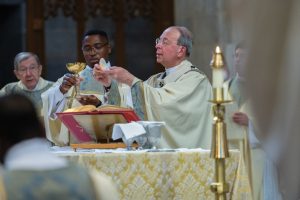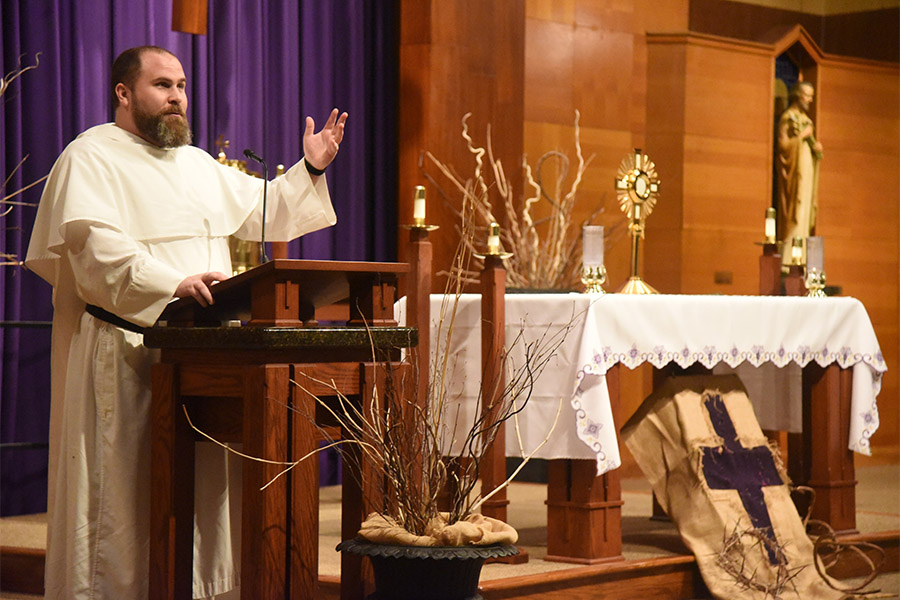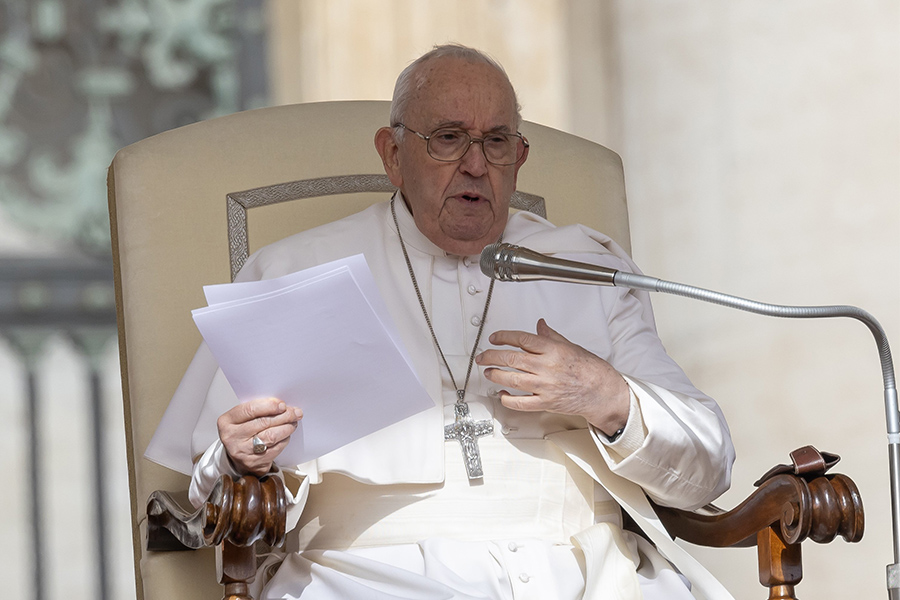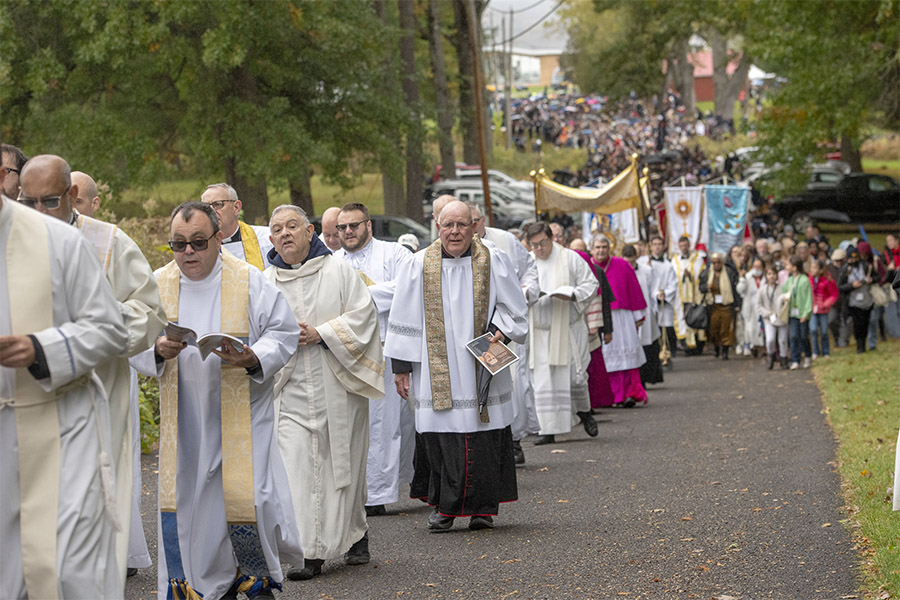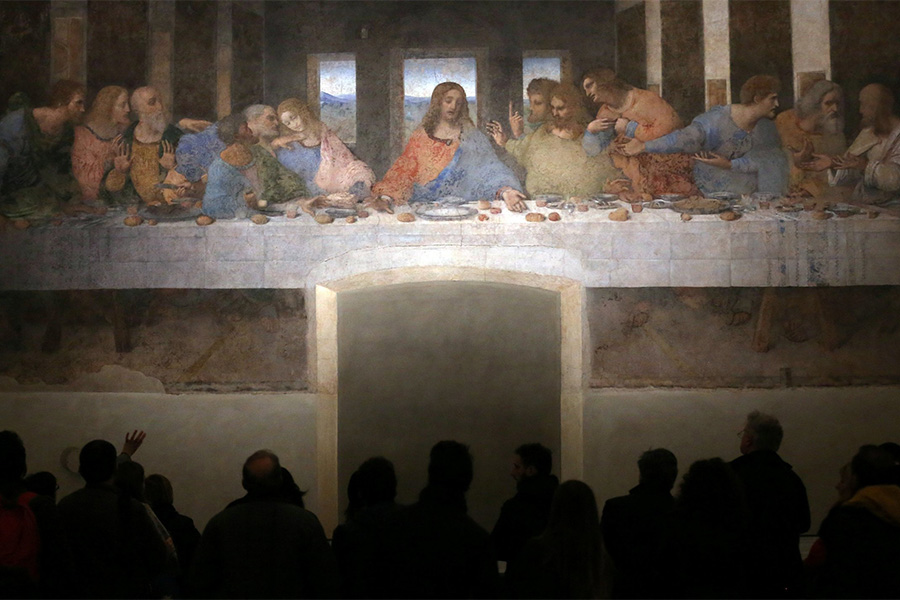Pundits often remind us that our nation is badly divided – politically, culturally and economically. We can scarcely agree on anything, even fundamental truths and values. Nor do we hesitate to assign blame for these divisions. Anyone with an electronic device can join in the fray and many do. Few offer suggestions for healing these deep rifts.
We may like to think that the Church rides above these cultural divisions, but that has never been the case. From the start, the Lord called his Church to accomplish its mission of evangelization in the midst of the world. After all, its mission is both to evangelize individuals as well as culture itself – to transform and ennoble the surrounding culture with the virtues and values of the Gospel.
This means that the Church, while not of this world, is most decidedly in the world. Inevitably, the divisions all around us seep into our own ranks. Cultural disputes are mirrored in the divisions that beset the Church, here and elsewhere. Yet, in his love for us, Jesus gave us an antidote to division, namely, the Eucharist, the sacrament of unity.
In these days marked by disunity, it is especially urgent that we understand and embrace the full significance of the Church’s Eucharistic teaching. In his Letter to the Ephesians, St. Paul urges us to “preserve the unity of the spirit through the bond of peace” for we are “one body and one Spirit.” St. Paul goes on to call us to the one hope that we share: “One Lord, one faith, one baptism, one God and Father of all… (Eph 4:1). His exhortation reflects the Lord’s earnest prayer that we, his disciples, would share in the unity of truth and love that he shared with his Father from all eternity. “May they be one, Father, just as you are in me and I am in you … that the world may believe” (Jn 17:21). The Church’s identity and mission hinge on our profound oneness with the Lord and with one another.
Thus, concern for the unity of the Church does not equate merely to a desire for calm – as if to say, “Can’t we all just get along?” It is more than that. The Church, in its unity and diversity, is modeled on the unity of the Persons of the Trinity (cf. Lumen Gentium, no. 4). Sharing in the union of the Godhead’s truth and love is at the heart of our identity and mission. We are, indeed, to be a sacrament – a living and efficacious sign – of unity in a fractured world.
At the heart of the Church’s life is the Eucharist, the sacrament of unity and charity. Sharing in the banquet of the Lord’s sacrificial love – by which he vanquished sin and death – we are bound together in a union of love. In the power of the Holy Spirit, the crucified and risen Lord draws us to himself and unites us with his heavenly Father and with one another. As ancient Christian writers often said, “The Eucharist makes the Church.” It continuously brings into being the communion of love and life that is the Church.
The communion that is the Eucharist also equips and requires us to think and live differently – not to be “tossed about by waves and swept along by every wind of teaching” (Eph 4:14). Rather, we are to “live the truth in love.” Our union with the Eucharistic Lord issues forth in a union of faith and hope but also in a unity that lovingly embraces what is morally true and good, fully in accord with human dignity. This is how we put into practice the love we celebrate in the Eucharist. This, too, is how we build up the Body of Christ and why we have chosen “Encounter Christ’s Presence” as the theme for our archdiocesan Year of the Eucharist, which begins June 6.
In this world, the Church’s unity will always be imperfect and St. Paul’s admonition to strive for unity remains valid. All the more reason, then, for us to open our hearts anew to the Eucharist, the source of our unity and the source of the strength we need to build up the unity of the Church, the Body of Christ. May we be one, so that the world may believe!
Learn more about the Year of the Eucharist here.
Also see
Copyright © 2021 Catholic Review Media
